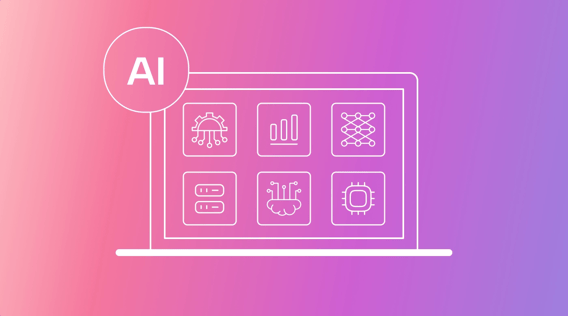2023 was a breakout year for generative AI. It finally went past newspaper headlines and started getting adopted in offices around the globe. In a McKinsey survey, 24% of C-suite executives said they regularly use GenAI for work.
This is partly a result of an explosion in the number of AI platforms available on the market. Gartner includes over 140+ AI platforms in its directory in 2025.
But among all these options, it can be hard to figure out the best platform to get started with. We’ll share our favorite AI platforms in 2025 and how you can find the right one for your company.
What is an AI platform?
An artificial intelligence platform is infrastructure and software that lets you build and maintain AI apps for your internal use cases. It helps you develop, deploy, test, and update machine learning or deep learning models and analyze the results.
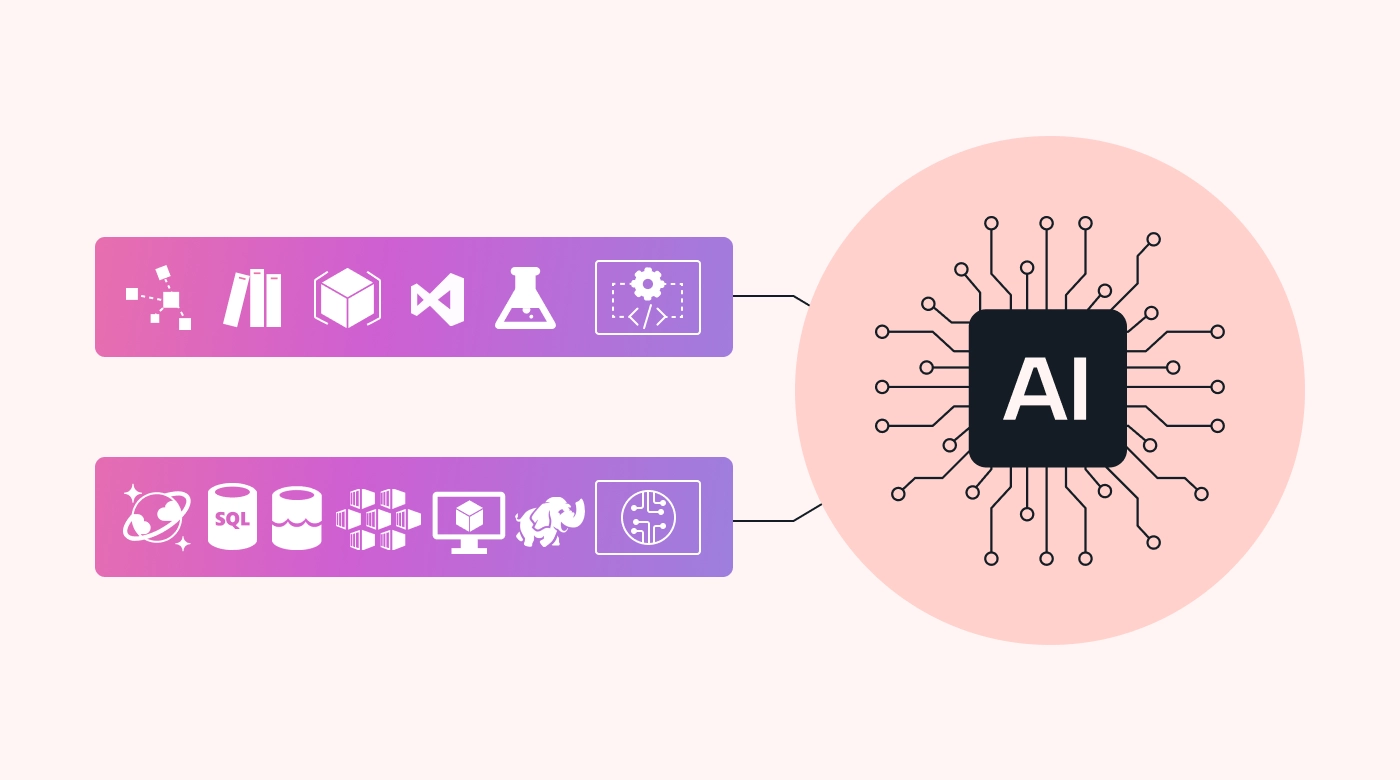
How do they do this? By providing the entire environment, you need to run AI apps on cloud-based servers. AI platforms include:
- Cloud computing with scalability to suit changing requirements
- Data lakehouse architecture for data storage (a combination of data lake and data warehouse functionality)
- Toolkits for quickly applying and testing different models
- Governance tools for oversight over how the data is used
This infrastructure allows you to train, tune, and deploy your model quickly. It also lets you get predictions from the live model and manage versions as you optimize them.
AI platforms are not the same as AI tools or apps with completed interfaces. You can’t just jump in and use AI for a specific use case, like automating task scheduling.
AI platforms allow you to build (or borrow open-source) and deploy custom algorithms to handle internal data.
What to look for in AI platforms in 2025
While no universal set of features makes “the best” AI platform, certain things are must-haves for any company looking to get started with AI in 2025.
Access to open-source libraries (or industry-leading commercial models)
You don't want to start from scratch unless you’re an AI researcher at a university or a giant corporation. Building an effective machine learning algorithm from scratch can take years and millions of dollars.
Instead, you want to use platforms that give you access to open-source libraries or frameworks.
So, one of the biggest things to consider is what models you get easy access to with the platform. Certain platforms have a unique advantage here:
- With Google Cloud, you can access Gemini (previously Bard), Gemma, and other industry-leading models.
- With OpenAI’s platform, you can work directly with ChatGPT 4.
- With IBM’s platform, you can use IBM’s watsonx.
Tools for segmenting and “productizing” your data
Just pouring your data into a model isn’t the ideal workflow for utilizing AI. Instead, you should start sorting and filtering the data to specific use cases.
Research from McKinsey shows that structuring your data into logical “data products” can help you deliver up to 90% faster new business use cases.
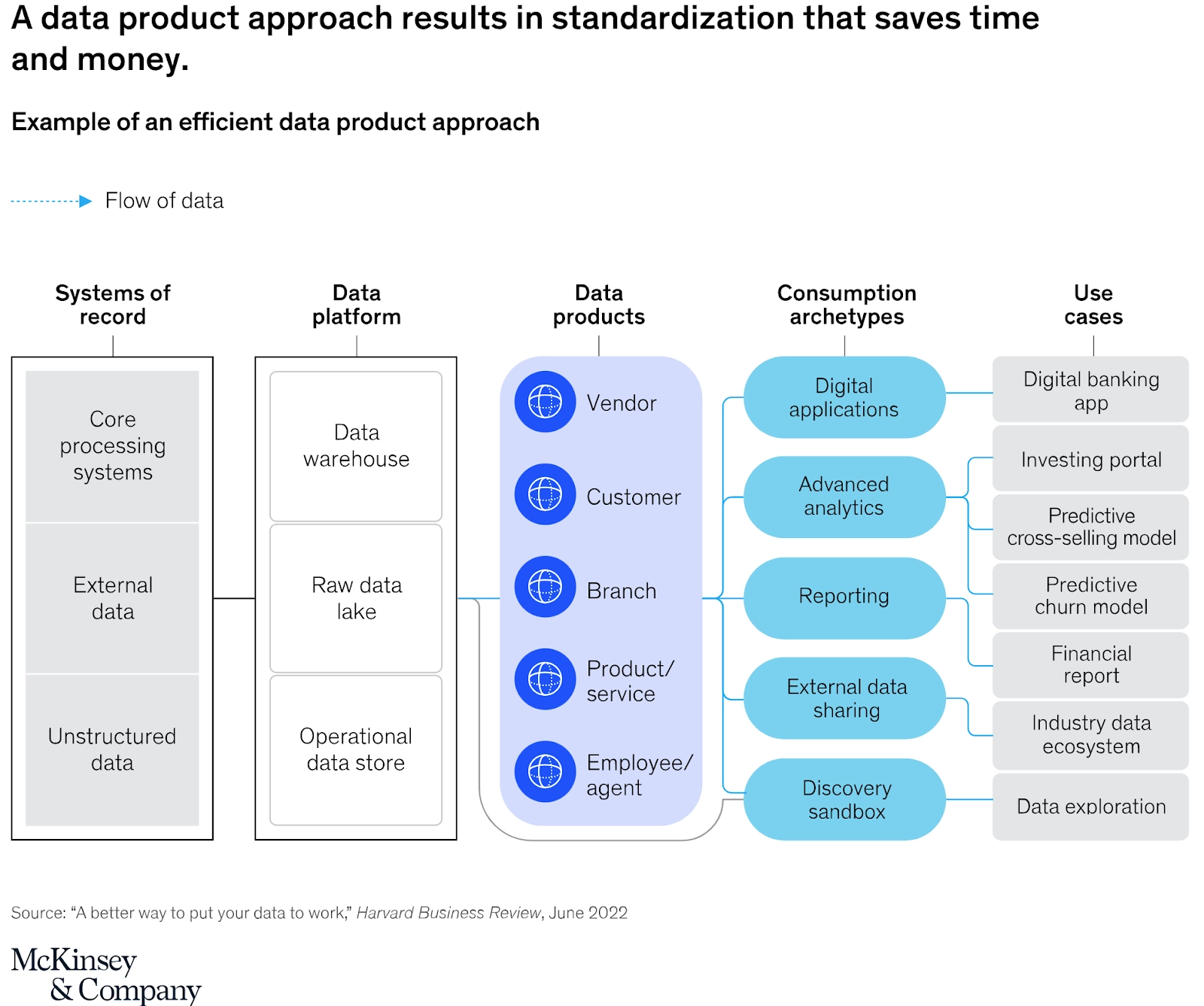
And, of course, you can also save on computing costs by avoiding including irrelevant data. And computing costs are not insignificant. AI-related server computing costs are predicted to reach $76 billion by 2028.
Data governance and compliance tools
By the end of 2025, 40% of US citizens will be covered by privacy regulations similar to GDPR. And the global movement for privacy controls is only getting started.
So, with ever stricter privacy regulations globally, you need stringent data governance tools to remain compliant. The platform needs to give you visibility and control over your customer’s data.
(If you’re confused by any terms used in this article, check out our AI glossary.)
9 best AI platforms for 2025, by use case
Below, we’ve created a list based on the factors highlighted above — access to models, data segmentation, and governance tools — as well as pricing, customer reputation, and learning curve.
Best enterprise custom AI: Google Cloud Vertex AI
Vertex AI is Google Cloud’s enterprise AI platform, with robust machine learning operations tools. It also offers access to Gemini, Search, and other commercial AI models from Google. The Google AI sub-division of Google created it.
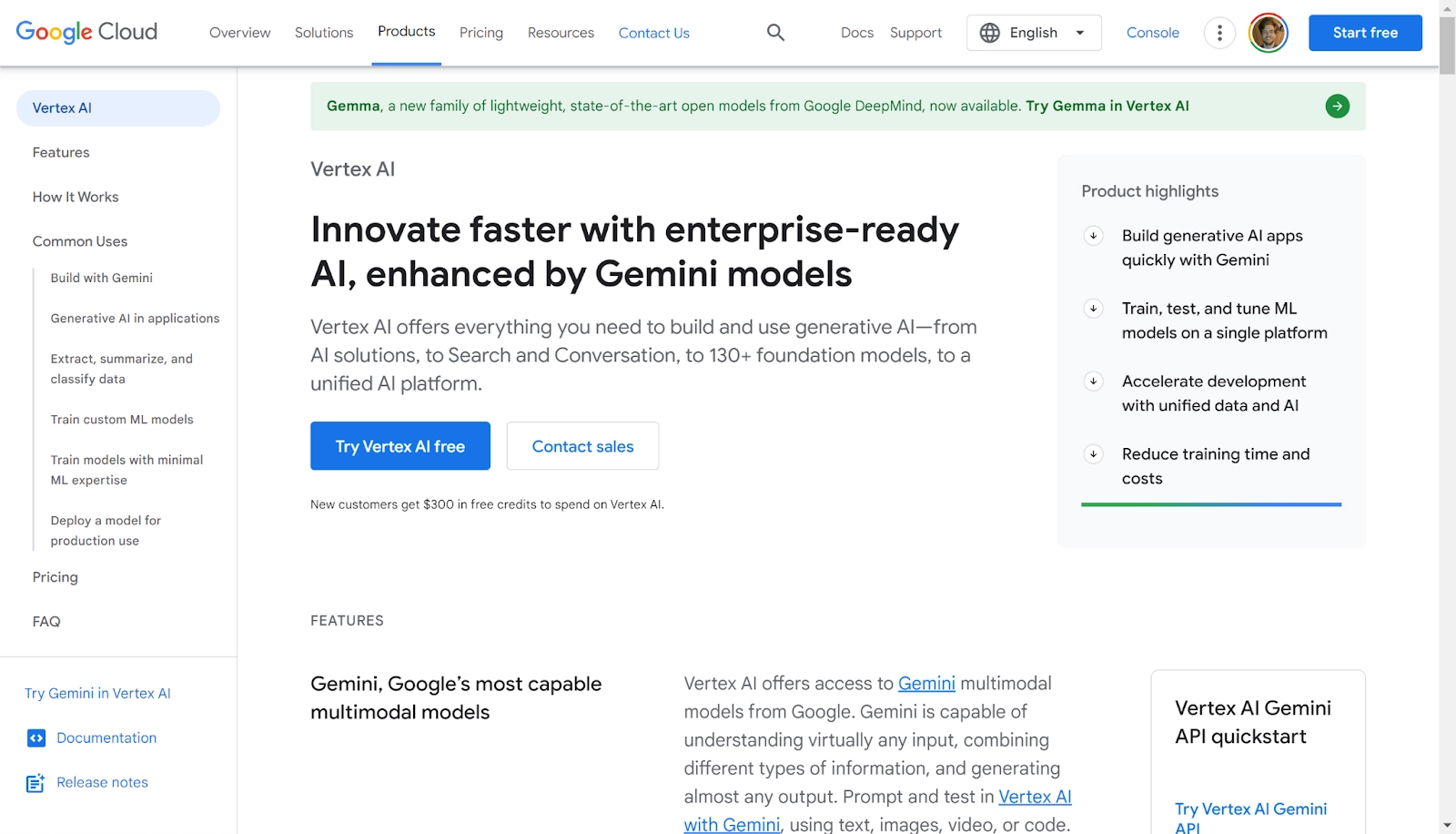
It’s a good choice for companies with robust data science expertise. However, implementation can be challenging without the right know-how and experience. So it’s not suitable for small companies without that expertise.
Top features:
- Access to a wide range of industry-leading models
- Machine learning operations tools (MlOps)
- AutoML makes training machine learning algorithms easy.
- Model Garden lets you test, customize and deploy Gemini, TensorFlow, and other models.
- Turnkey generative AI with Gemini (previously Google Bard)
- Pre-trained models for text-to-speech, image recognition, and more
- Natural language processing (NLP) tools
Available models:
- Google’s Gemini multimodal model (which utilizes deep neural networks)
- Gemma
- Flan T5
- Llama 2
- A range of other open-source models through TensorFlow
Use cases:
- Building generative AI applications
- Smart search
- Conversational intelligence (for support, employee onboarding, and more)
Best for custom generative AI apps: OpenAI API
OpenAI, best known for ChatGPT, launched an API (application programming interface) and developer platform in 2020. However, recently, with the increased power of ChatGPT models, it has become very popular.
Today, many SaaS apps use OpenAI’s API to use generative artificial intelligence to deliver a better experience.
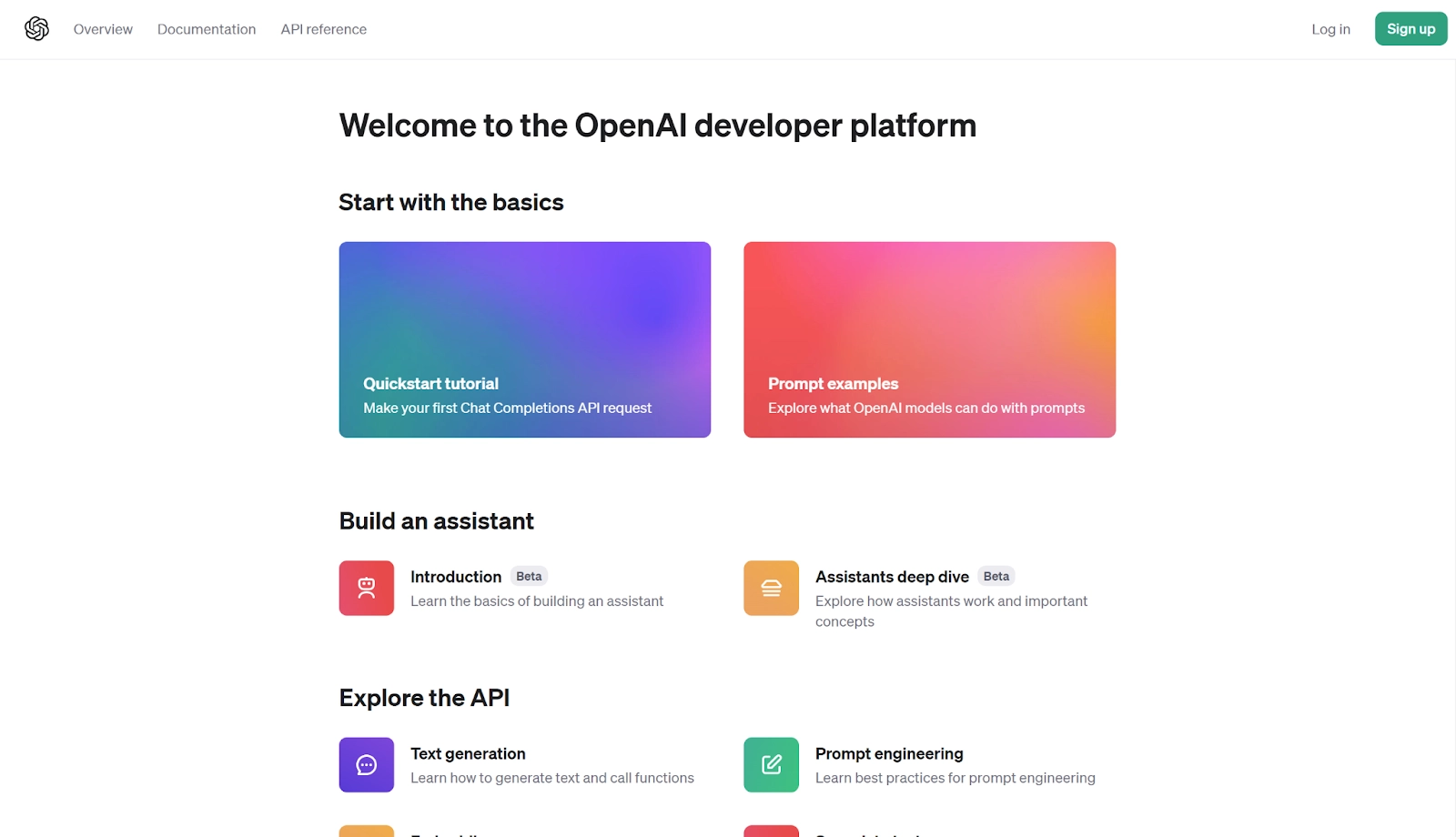
The OpenAI API is most suitable for SaaS or app developers who want to deliver GenAI functionality to their users. For example, this could be a virtual assistant that answers questions about the app.
Top features:
- Turnkey generative AI through API (ChatGPT)
- Ready-made natural language processing tools let you interact using many human languages.
- Easily build a virtual assistant with prebuilt features and documentation.
- Offer powerful text generation features to your users.
Available models:
- ChatGPT 4.0, ChatGPT 3.5, and other models for text generation
- Dall E for image generation
- Whisper for speech-to-text uses
Use cases:
- Using generative AI to train employees
- Using GenAI to offer a virtual assistant or other services to your users
Best for using open-source frameworks: TensorFlow
TensorFlow is a machine learning platform that helps teams test and deploy various open-source models. The Google Brain team originally developed it for internal use.
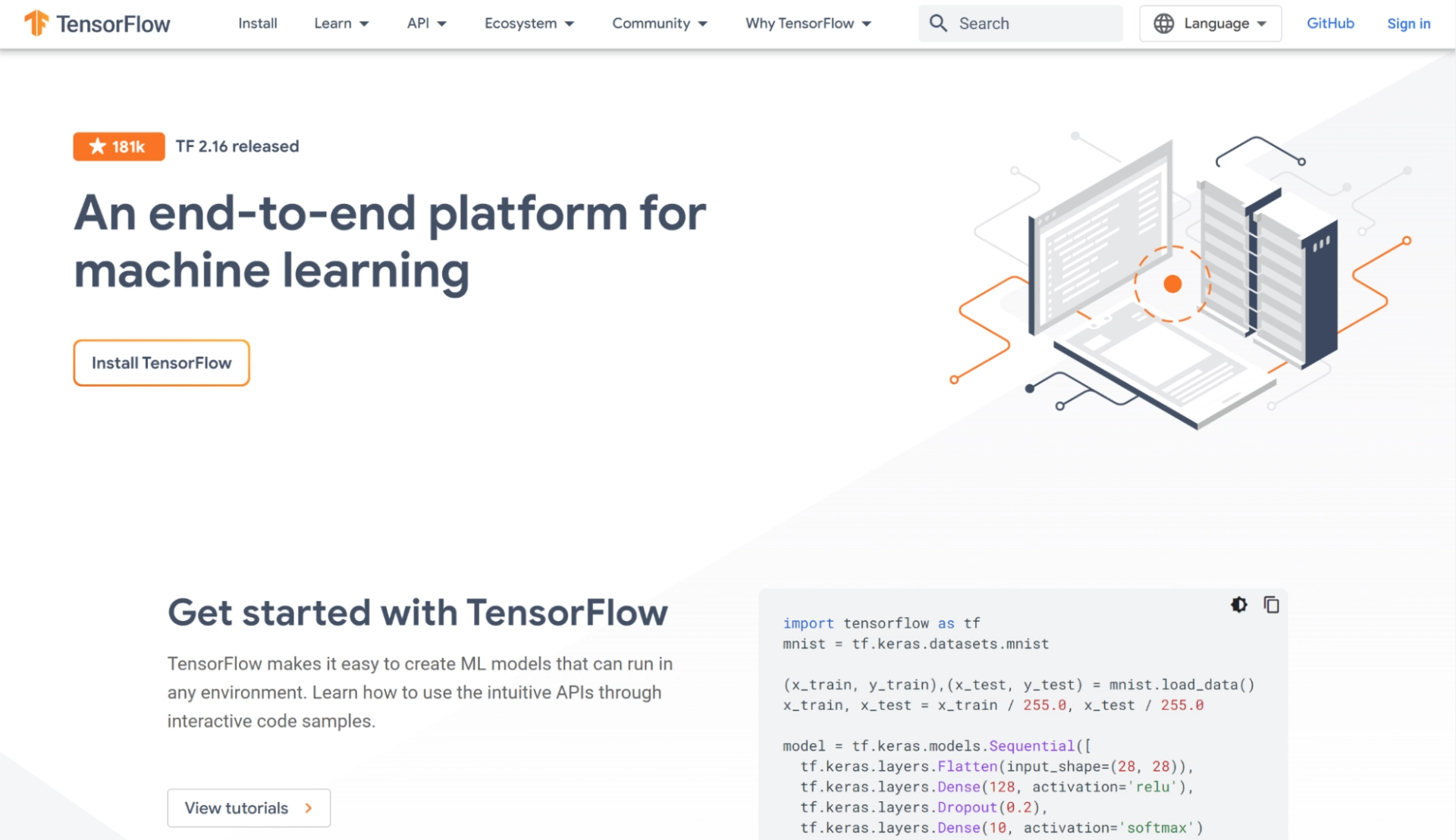
With its open-source models, robust training materials, and certification program, it’s suitable for aspiring ML students.
It’s also a good platform for teams that want to expand and improve machine learning models if you don’t want to rely on finished models from commercial providers like OpenAI.
Top features:
- The TensorFlow Model Garden includes a wide range of open-source machine learning models.
- In-depth tutorials and documentation
- Courses and certification for learning ML
- The open-source community is helpful.
Available models:
- ResNet for image recognition
- ALBERT for natural language processing
Use cases:
- Aspiring machine learning students
- Data scientists who want to build a custom model based on open-source libraries
Best for small teams: Dataiku
Dataiku is a centralized AI platform with functionality like GenAI and AI-powered analytics. It offers no original AI models but allows you to leverage open-source models for various use cases.
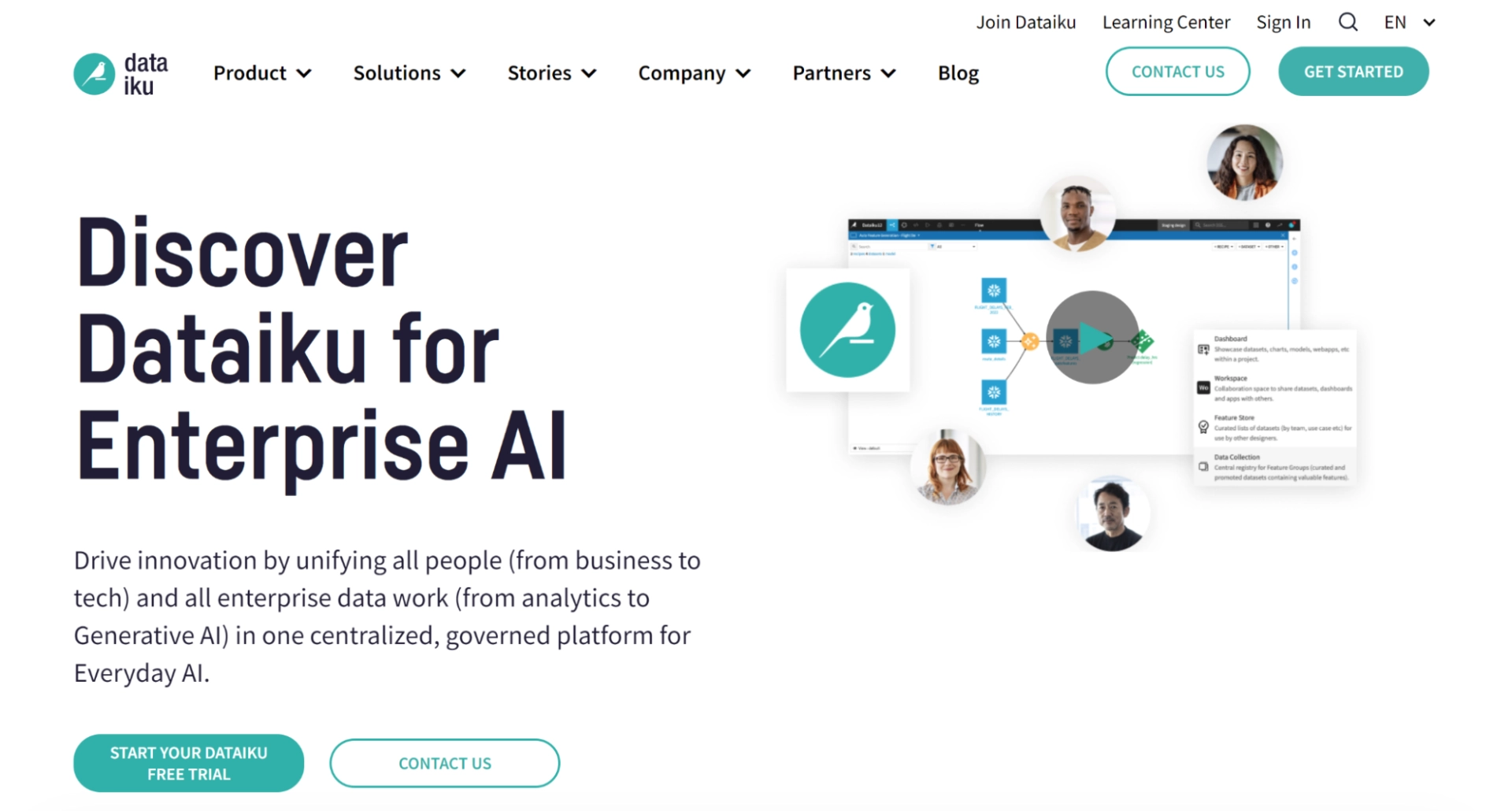
In addition, it offers pre-made applications powered by AI for use cases such as predictive analytics. It’s a solid option for smaller companies experimenting with open-source AI.
Top features:
- Predictive models for analytics and other AI-powered analytics applications
- Turnkey GenAI solution
- The centralized platform makes it easier to use for the average business
- Simple data preparation and visualization tools
- MLOps tools
Available models:
- Offers access to open-source models but has no original model
Use cases:
- Managing applications created using open-source models and libraries
Easiest to set up AI analytics: Alteryx
Alteryx is an AI platform that implements analytics across your entire business. It also offers a variety of tools for model training and model management.
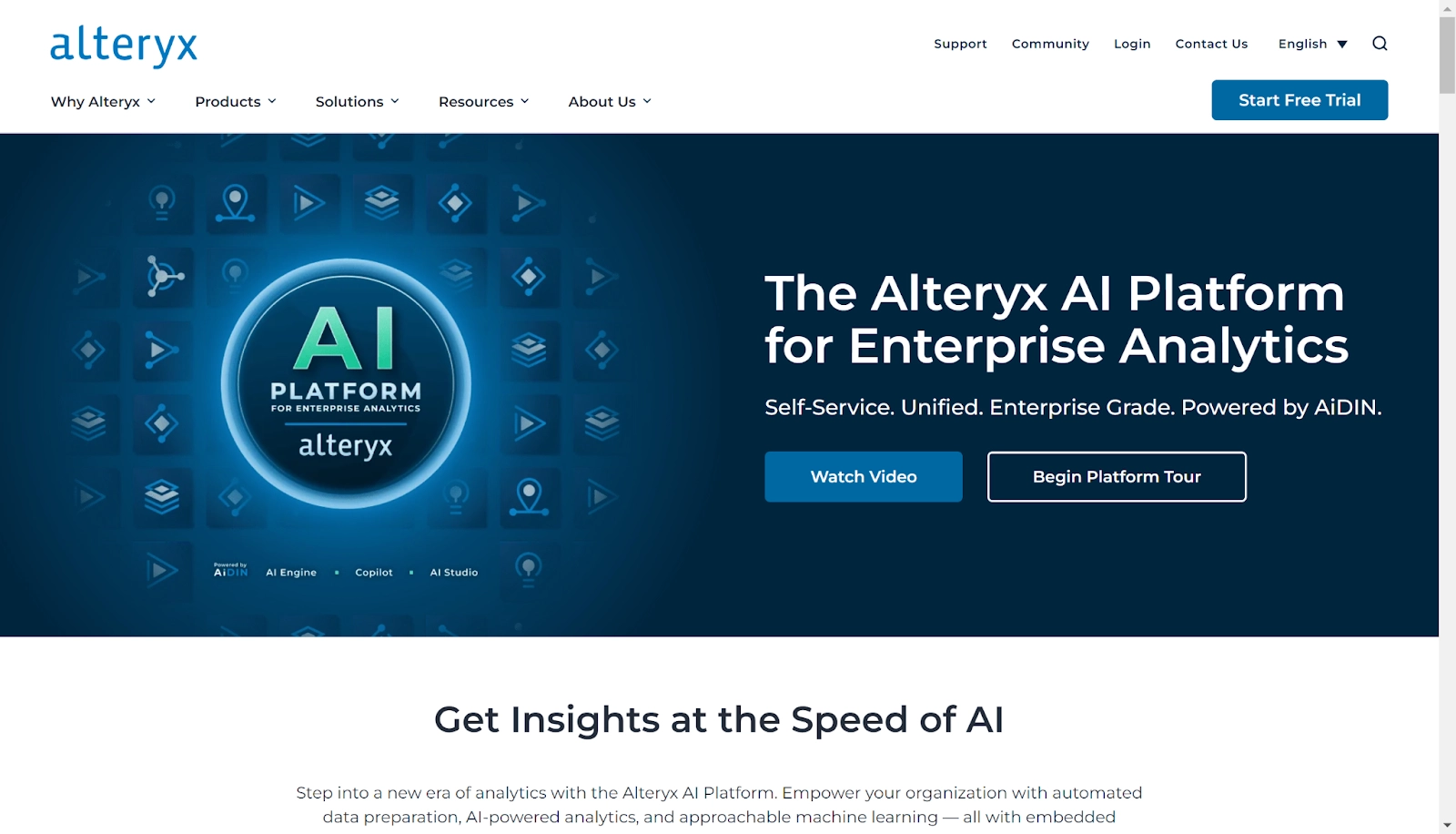
It’s a suitable option for teams that want to get started with AI analytics with limited up-front work.
Top features:
- AI-powered predictive analytics
- Tools for extracting, loading, and transforming data (ETL or ELT)
- AutoML tools for training algorithms with little oversight
Available models:
- Alteryx offers a variety of gradient-boosting models like xgBoost, LightGBM, and ElasticNet.
- It offers open-source feature libraries like Woodwork, Featuretools, and EvalML.
Use cases:
- Setting up custom AI analytics solutions quickly
Best for managing multiple separate APIs: DataRobot
DataRobot is a platform that relies on various models and third-party APIs to help you leverage the power of AI. The main focus is on quickly building AI capabilities into internal software.
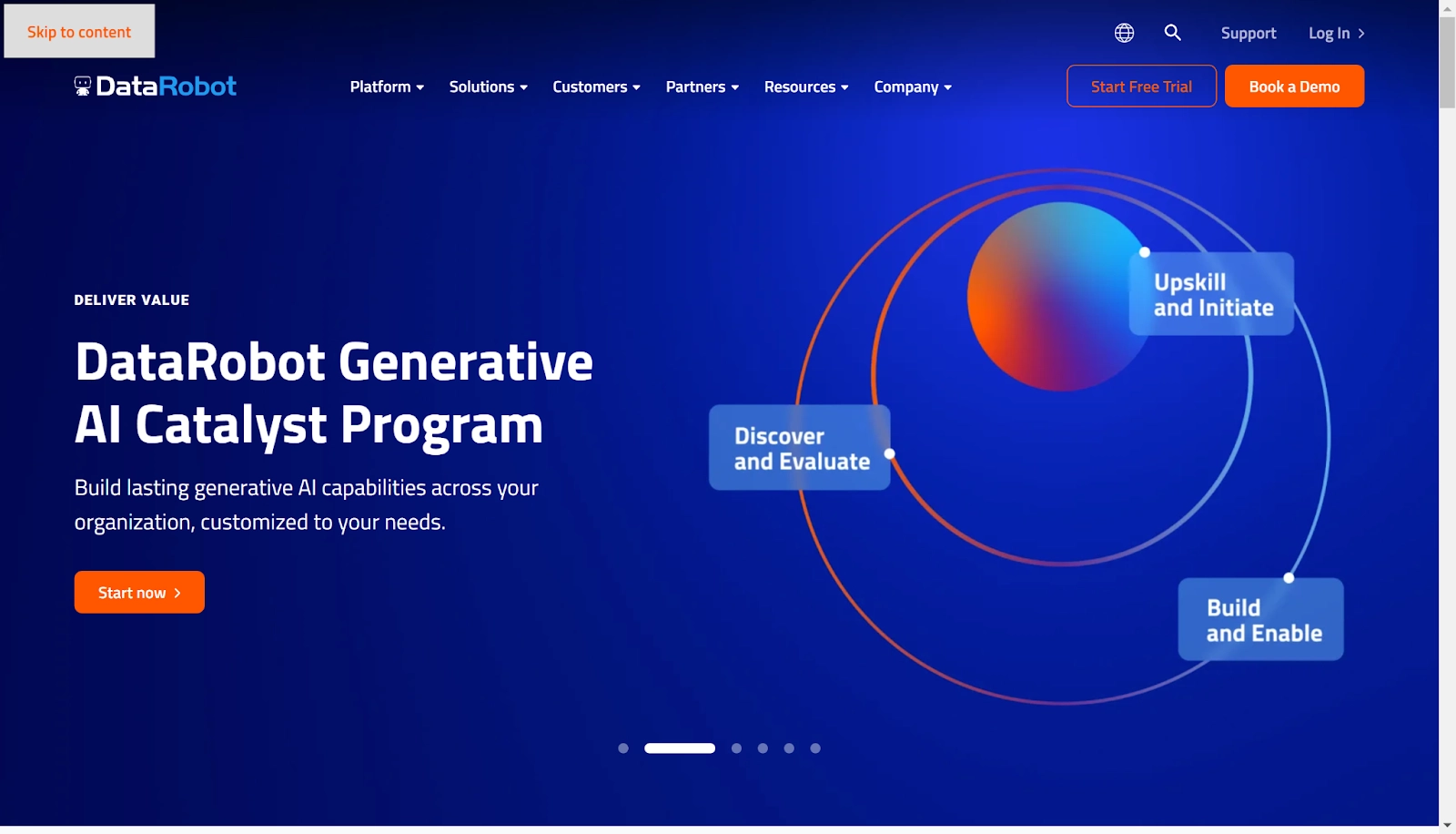
It’s a good option if you have several separate use cases where one API or model is more suitable than another.
Top features:
- Centralized dashboard for managing multiple AI APIs
- Automated feature selection based on industry blueprints
- Generate content with a selection of GenAI models
Available models:
- DataRobot offers 30+ custom artificial intelligence models trained on internal data.
- It also allows access to third-party models like ChatGPT through APIs.
Use cases:
- Managing multiple models and comparing their efficiency
Best for scalable solutions: Microsoft Azure AI
Microsoft Azure AI is an AI platform built on top of the cloud computing platform Microsoft Azure. It offers flexible scalability, robust data governance, and other enterprise features.
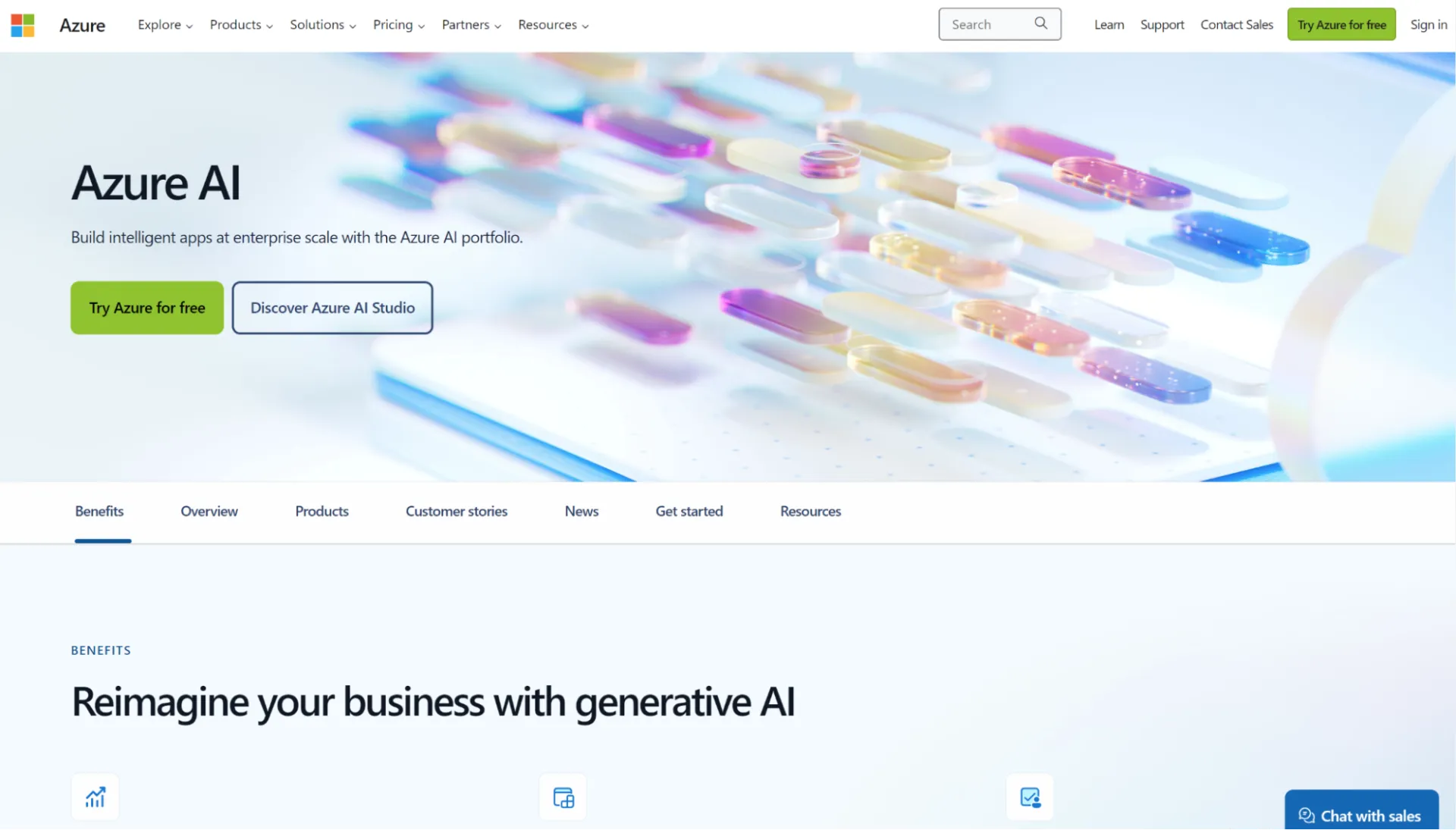
It’s a suitable choice for large companies with a growing need for AI capabilities throughout their business. It also gives access to the ChatGPT model within a more robust platform.
Top features:
- Azure AI studio offers a variety of prebuilt models or tools for managing your own.
- Quickly deploy generative AI with APIs (like ChatGPT).
- Search powered by retrieval-augmented generation (RAG)
- MLOps tools
Available models:
- ChatGPT 4 and 3.5 for text-based content generation and virtual assistants
- Dall E for image generation
- Azure Search for AI-powered search
Use cases:
- Building custom AI solutions for enterprises
- Implementing ChatGPT for various use cases
Best for integrated database management: SAP Hana Cloud
SAP Hana Cloud is SAP’s smart database management platform designed specifically for machine learning applications.
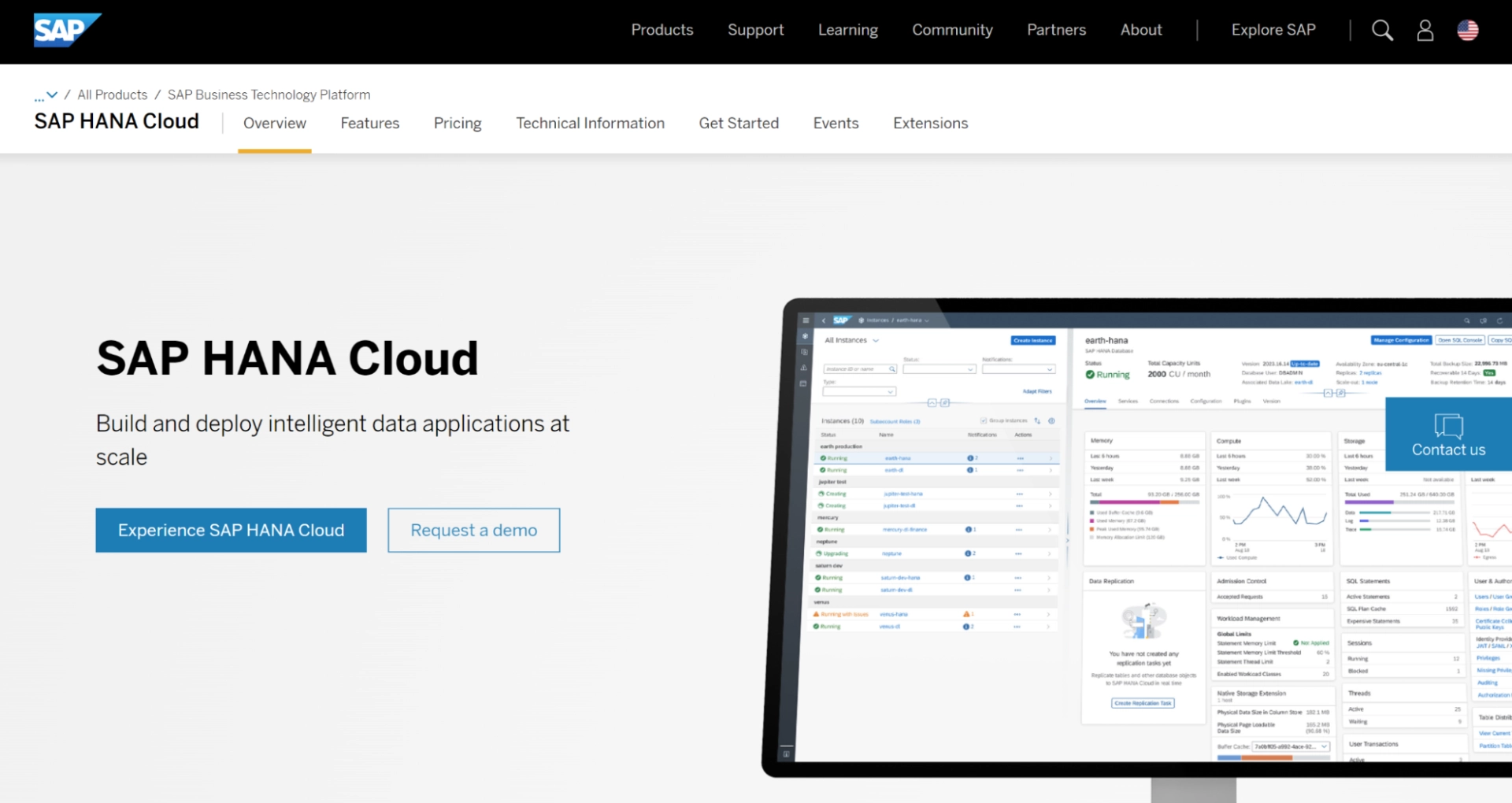
It’s a solution built to store data uniquely through multi-model processing. It gives you the power of many traditional databases, like relational, document store, graph, geospatial, and vector.
This capability suits various AI use cases and large companies with big data sets. (It’s similar to other cloud platforms like Amazon Web Services in this sense.)
Top features:
- Multi-model processing and tiered storage make new database deployment faster.
- Migration tools that support stage-by-stage migration
- Unique uptime and load optimization tools
Available models:
- None: Hana Cloud is a platform for handling and preparing data that AI models can access and transform later.
Use cases:
- Managing AI-relevant data sets for enterprises.
Best for conversational AI use cases: watsonx (previously IBM Watson)
watsonx is IBM’s new and improved conversational AI, an update on IBM Watson. It offers an AI studio for building and deploying custom apps, governance tools, and a powerful virtual assistant platform.
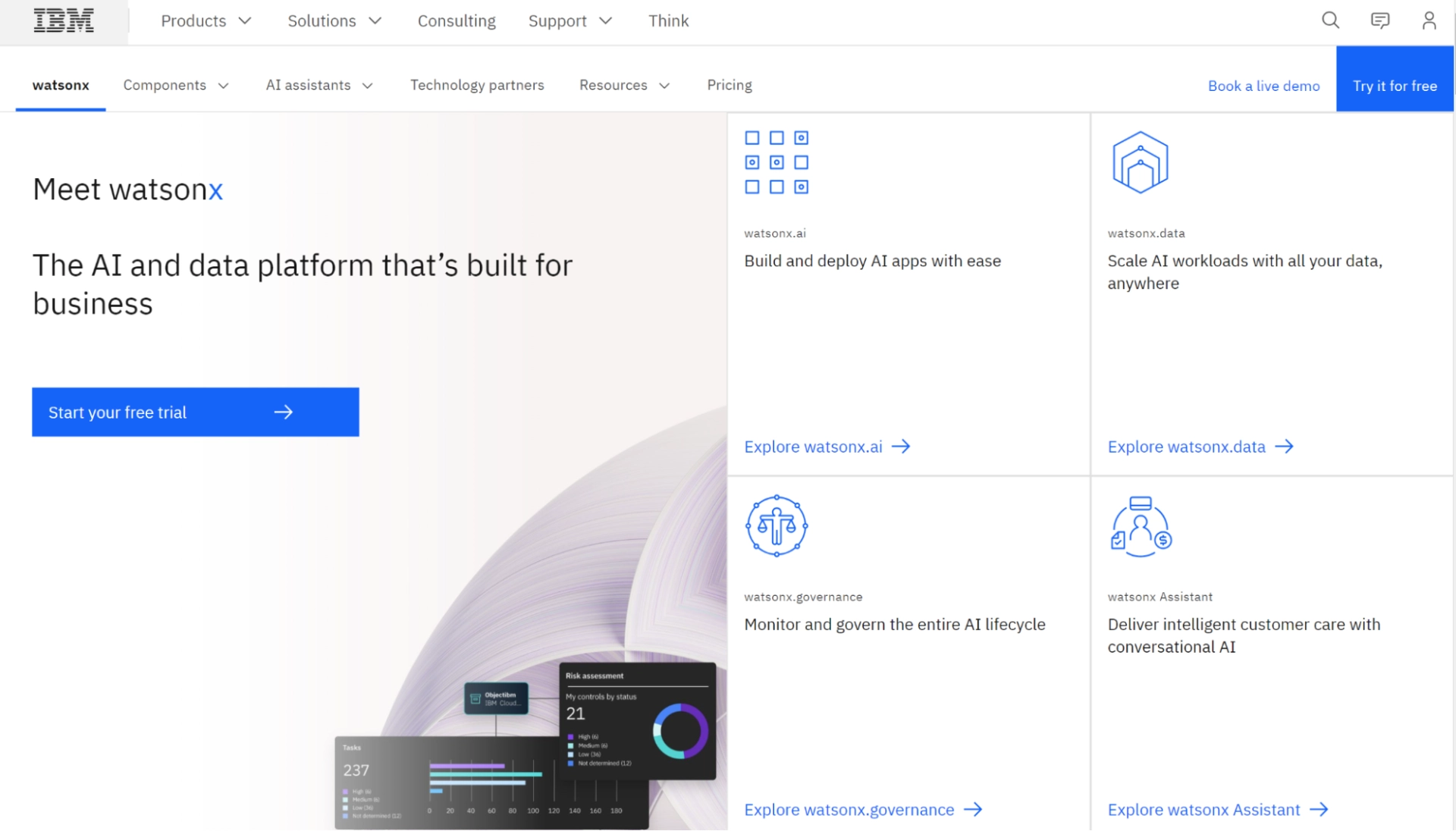
Before ChatGPT was all the rage in the news, IBM Watson was making the rounds. It’s been a capable conversational AI that has been useful for internal or customer chatbots for years. With watsonx, IBM has developed a more powerful solution for similar use cases.
Top features:
- AI studio that allows you to build and deploy custom applications.
- The watsonx Assistant virtual assistant platform
- Governance platform for managing the entire AI lifecycle
Available models:
- watsonx
- IBM Granite
- Llama 2
- Flan T5
Use cases:
- Creating an AI-powered chatbot or virtual assistant that understands your business
- Outsource basic customer service requests to a conversational AI
Unlock the power of AI for productivity without custom development
AI platforms are powerful tools in the hands of an experienced data science team. But for the average business owner who wants to use the power of AI, they’re often not the right choice.
Instead, AI-powered apps offer a faster (and cheaper) learning curve. For example, with Motion, you can start optimizing your schedules with AI by integrating with calendars you already use.
Our algorithm helps you automatically assign tasks based on availability, skill set, priority level, task dependencies, deadlines, and more.
It also automatically reshuffles your calendar based on new emergency tasks. For example, it can move low-priority tasks to a later date when an emergency meeting takes priority.
You can even automatically batch meetings to help you protect a time-blocked schedule.

Ragnar is a Pomodoro enthusiast and a SaaS writer with over 10 years of experience. When he's not focused on getting a sentence just right, he loves cooking and training Muay Thai.
